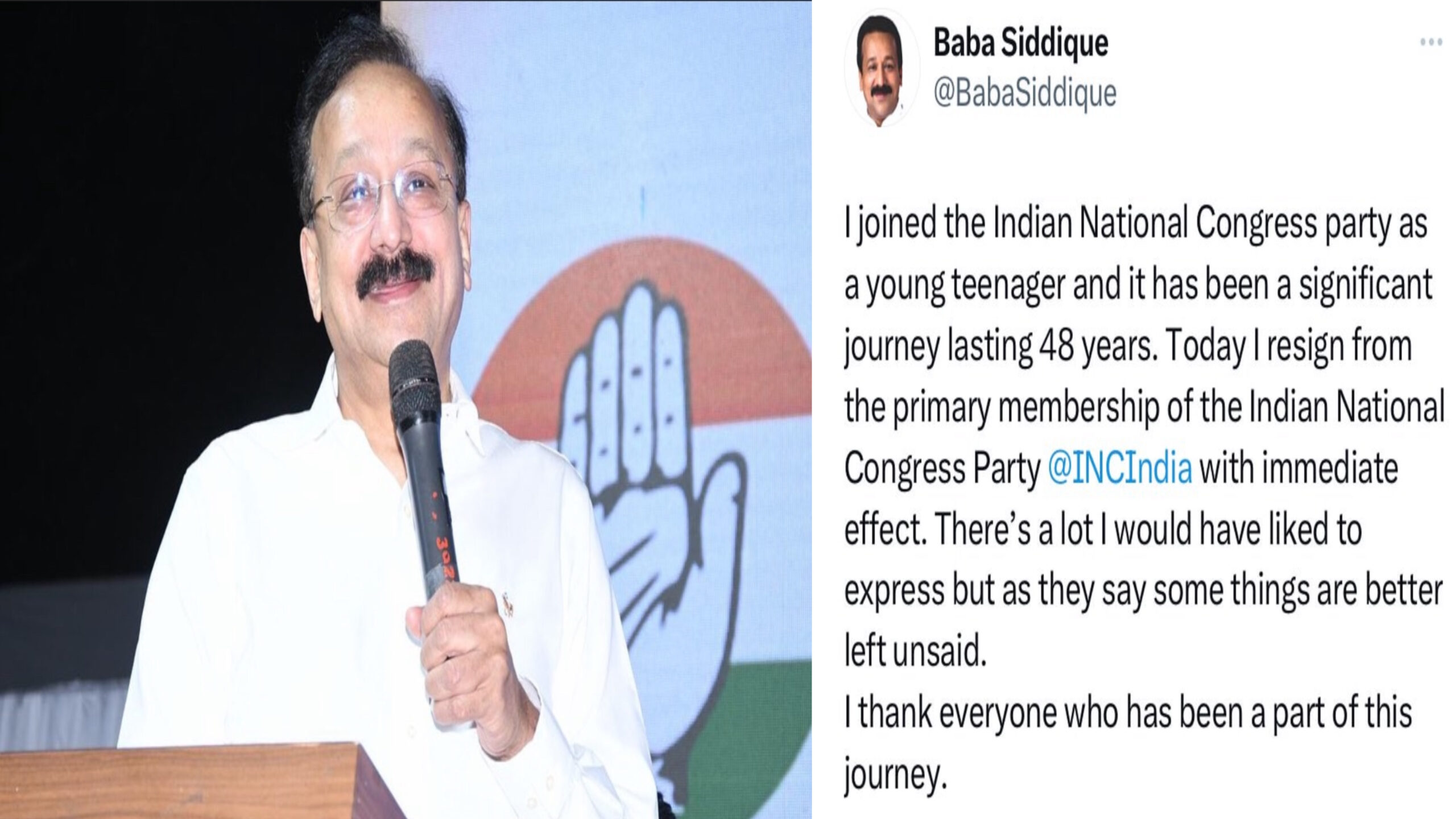In a significant shift in the political landscape of Mumbai, Baba Siddique, a veteran Congress leader, has decided to part ways with the Indian National Congress (INC), marking a pivotal moment in his long-standing affiliation with the party. This move comes as a substantial blow to the Congress in Mumbai, especially following the departure of another key figure, Milind Deora, who left the party in January to join the Shiv Sena faction led by Eknath Shinde. Siddique’s announcement to resign was made public through a post on X, the platform formerly known as Twitter, where he reflected on his nearly five-decade-long journey with the Congress, which he embarked upon in his teenage years.
At 66 years old, Siddique expressed a mix of emotions about his departure, noting, “Today I resign from the primary membership of the Indian National Congress Party @INCIndia with immediate effect.”Despite the intricate nature of his choice, he opted to keep some feelings unsaid, embracing the idea that it’s sometimes better to leave certain things unsaid.
He extended his gratitude towards all those who had been part of his political voyage, a journey that saw him being mentored by the esteemed actor and politician Sunil Dutt and ascending to the position of a minister in previous Congress administrations.
The speculation that had been circulating about Siddique’s potential shift to the Nationalist Congress Party (NCP), led by Ajit Pawar, was confirmed with the announcement of his formal joining slated for a public event in Bandra East on February 10. This transition is not only personal but also likely to influence his son, Zeeshan Siddique, the 31-year-old MLA from Bandra East, who is anticipated to follow in his father’s footsteps ahead of the Maharashtra assembly elections scheduled later in the year. Earlier denials from both father and son regarding these speculations have now given way to a concrete decision.
The reaction from the Mumbai Congress was swift and pointed, with Mumbai Congress chief Varsha Gaikwad expressing her deep disappointment over Siddique’s “self-serving action.” Gaikwad’s statement highlighted the timing of this departure, amidst what she described as a critical juncture for the country and a period of concerted effort by the Congress family to combat what they see as an assault on democracy by the BJP. This sentiment suggested that Siddique’s exit might also be motivated by considerations outside of political ideology, including potential implications for his business ventures in the face of legal scrutiny, with the Enforcement Directorate investigating him.
Siddique’s departure signifies more than just a personal political realignment; it is indicative of a broader trend within the Mumbai Congress, with rumors suggesting that Amin Patel, the MLA from Mumbadevi, and Aslam Shaikh, the MLA from Malad West, might also be contemplating exits. Both Patel, a close associate of Milind Deora, and Shaikh, who is under investigation by the Enforcement Directorate, are significant figures within the party, representing its Muslim leadership in Mumbai. Should these speculated departures materialize, Varsha Gaikwad, representing Dharavi, would remain as the sole Congress MLA in Mumbai, marking a stark reduction in the party’s representation in the city.
The unfolding of these events comes at a time when political alignments are increasingly fluid, with leaders navigating the complex terrain of personal convictions, political affiliations, and the broader socio-political implications of their choices. Siddique’s departure from the Congress, a party with which he has been intricately linked for nearly half a century, underscores the shifting dynamics within Indian politics, where ideological commitments are tested, and new alliances are formed. As the political landscape continues to evolve, the repercussions of such movements will undoubtedly shape the strategies and fortunes of the parties involved, with the Mumbai Congress facing a critical challenge in maintaining its relevance and cohesion in the face of these significant departures.

